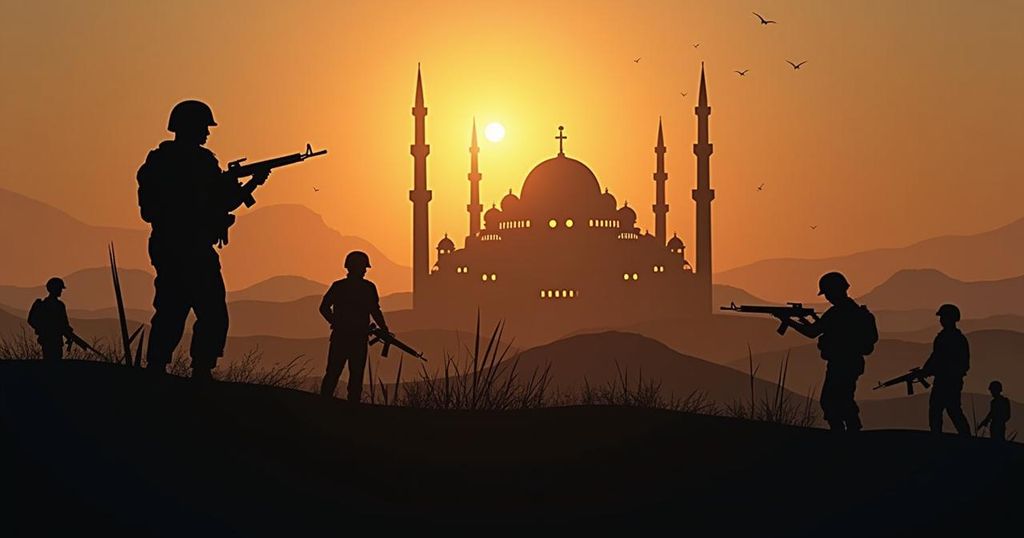The Sudanese army has denied accusations from the United Arab Emirates of bombing the UAE ambassador’s residence in Khartoum. The UAE claims it will file a protest about this alleged incident, while Sudanese leaders accuse the UAE of providing military aid to the RSF. Kuwait and Jordan have condemned the alleged attack, stressing the importance of protecting diplomatic missions.
On September 30, 2024, the Sudanese army publicly rejected allegations made by the United Arab Emirates (UAE) regarding an alleged bombing of the UAE ambassador’s residence in Khartoum. The accusations originated from the UAE Ministry of Foreign Affairs, which claimed that Sudanese forces had carried out the attack using aircraft and indicated intentions to file a protest with the United Nations and regional organizations. This escalation in tensions follows accusations from Sudanese military leaders, who have asserted that the UAE is contributing to the conflict by providing military aid to the Rapid Support Forces (RSF). In a statement, a spokesperson for the Sudanese Armed Forces firmly denied the claims made by the UAE, asserting that their forces do not target diplomatic missions or humanitarian organizations. Instead, the spokesperson attributed the bombings to the actions of the RSF, labeling them as “Terrorist militia of the Daglo rebels” and accusing them of receiving support from external nations. The spokesperson reiterated the army’s commitment to only target locations where RSF forces are located, emphasizing this as a legitimate measure to uphold the integrity of the Sudanese state. Following escalated hostilities that began in April 2024, most diplomatic missions have vacated the capital, Khartoum, relocating primarily to Port Sudan in the east. Moreover, both Kuwait and Jordan have condemned the reported attack on the UAE ambassador’s residence. Kuwait’s Ministry of Foreign Affairs highlighted the necessity of respecting the sanctity of diplomatic missions, calling for full protection in accordance with the 1961 Vienna Convention on Diplomatic Relations. Simultaneously, a foreign ministry spokesperson from Jordan conveyed strong condemnation and absolute rejection of the alleged bombing, deeming it a grave breach of international law and a violation of diplomatic premises.
The recent accusations by the UAE against Sudanese armed forces form part of an ongoing conflict that has plagued the region since April 2024. The Rapid Support Forces (RSF), accused of seizing control of Khartoum, have been implicated in various violations, including assaults on foreign diplomatic missions. As tensions rise between Sudan and the UAE, diplomatic relations have been strained, prompting calls for adherence to international law regarding the protection of diplomatic entities. The backdrop of this situation is characterized by geopolitical maneuvering, where regional actors like the UAE are increasingly seen as influential players providing military support to local factions, thereby exacerbating instability in Sudan.
In conclusion, the Sudanese army has firmly denied the UAE’s allegations of bombing its ambassador’s residence, reaffirming its position against targeting diplomatic missions. The rising tensions between Sudan and the UAE, coupled with the involvement of the RSF and others, reflect the complexities of the ongoing conflict. Regional responses from nations like Kuwait and Jordan underscore the significant concerns regarding the sanctity of diplomatic relations and international law in these troubling times.
Original Source: sudantribune.com







